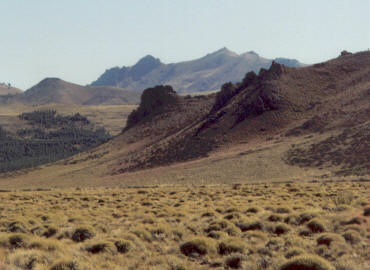This week I thought instead of studying a poem I would look around for some interesting articles on poetry as a whole. I have thoroughly enjoyed this and would really recommend it to others who are interested; even if poetry is not that much of an excitement to you I'd encourage anyone to research their favourite things in the news, because I know how easy it is to let the TV tell you what is important in the world today and forget that so many things are happening that they can't all be focused on and broadcast.
So I shall list a few places to start here with brief descriptions of my findings. Many of them were surprisingly science-based and thus all the more enjoyable for someone who no longer uses that part ofher brain in her studies.
There is fascinating research going into encoding writing in the DNA of microorganisms! Check out this article http://www.engadget.com/2015/12/30/christian-bok-the-xenotext-bacteria-poetry/
Article about a computer which writes poetry and to me some of it seemed beautiful because the words used were placed amongst others one would not normally consider, which to me is pure creativity in a human. It is a little hard to judge when you know what the author is but I was pleasantly impressed http://motherboard.vice.com/read/how-machines-write-poetry
It is only briefly mentioned, but this woman went through depression at university whilst studying English (as I want to) and yet managed to undergo therapy to come out feeling stronger on the other side and now recite poetry about her experiences. I am glad to see that it is helping other people as it does me http://www.theguardian.com/commentisfree/2015/dec/29/counselling-therapy-anxiety-depression-university
Here is a great story about a poet reciting in a prison and the inmates actually enjoying it far more than they had expected. http://www.nytimes.com/2015/12/30/nyregion/bringing-poetry-to-rikers-island-where-they-cant-cage-your-mind.html?_r=0
I hope these give some food for thought and I would love to read anything anyone else finds!
And also because I can and want to I shall say HAPPY NEW YEAR :)
So I shall list a few places to start here with brief descriptions of my findings. Many of them were surprisingly science-based and thus all the more enjoyable for someone who no longer uses that part ofher brain in her studies.
There is fascinating research going into encoding writing in the DNA of microorganisms! Check out this article http://www.engadget.com/2015/12/30/christian-bok-the-xenotext-bacteria-poetry/
Article about a computer which writes poetry and to me some of it seemed beautiful because the words used were placed amongst others one would not normally consider, which to me is pure creativity in a human. It is a little hard to judge when you know what the author is but I was pleasantly impressed http://motherboard.vice.com/read/how-machines-write-poetry
It is only briefly mentioned, but this woman went through depression at university whilst studying English (as I want to) and yet managed to undergo therapy to come out feeling stronger on the other side and now recite poetry about her experiences. I am glad to see that it is helping other people as it does me http://www.theguardian.com/commentisfree/2015/dec/29/counselling-therapy-anxiety-depression-university
Here is a great story about a poet reciting in a prison and the inmates actually enjoying it far more than they had expected. http://www.nytimes.com/2015/12/30/nyregion/bringing-poetry-to-rikers-island-where-they-cant-cage-your-mind.html?_r=0
I hope these give some food for thought and I would love to read anything anyone else finds!
And also because I can and want to I shall say HAPPY NEW YEAR :)

